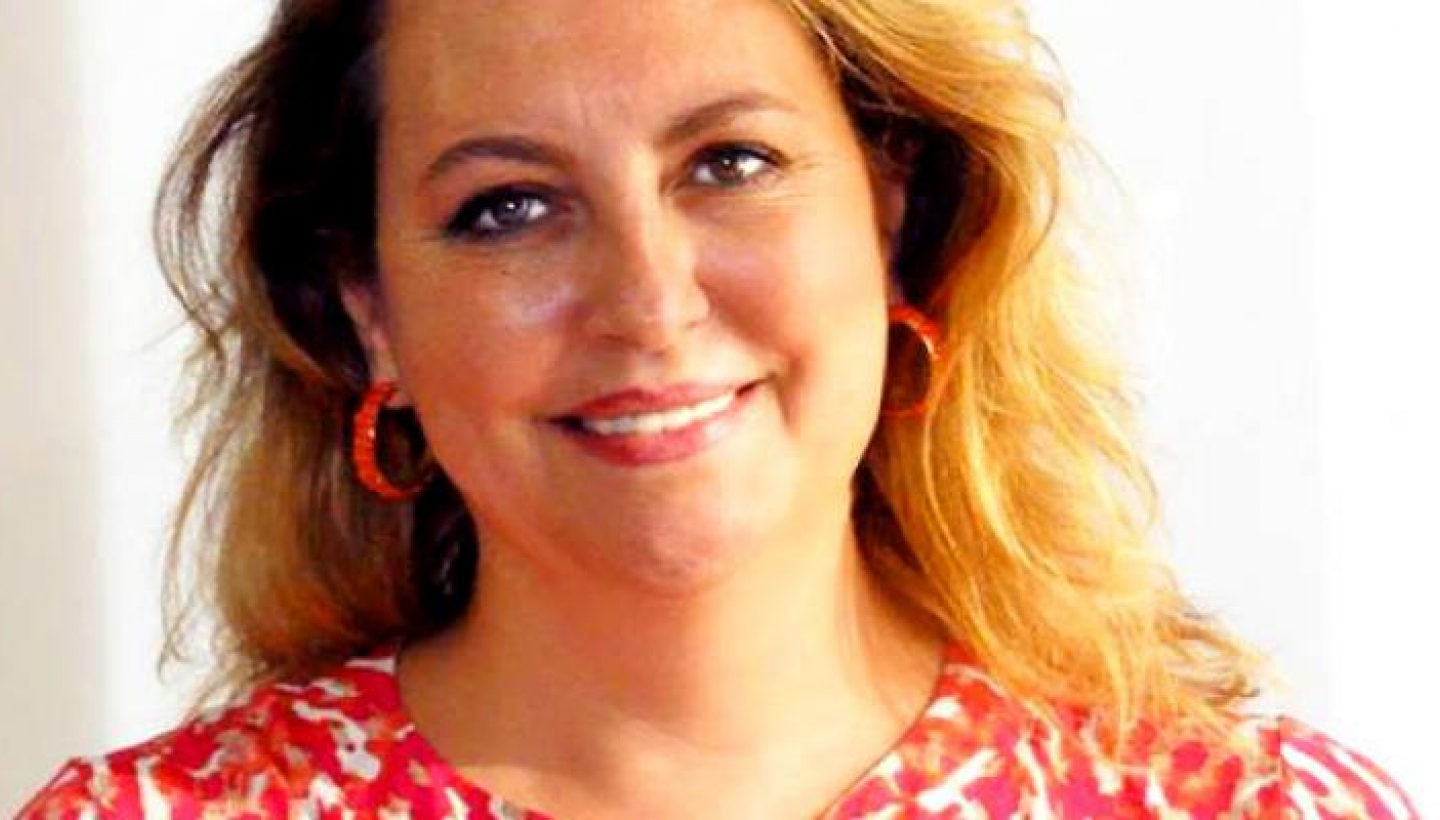May Escobar is Innovation Director in Fundetec, whose mission is “to focus on the performance of two clear objectives: impulse adoption and the general use of the TIC by citizens, businesses and institutions, and increase the penetration of the Internet in Spanish homes and in small and medium sized companies. The aim of these objectives is to reduce the digital breach, the one that separates Spain from more advanced countries in the European Union like the separation between different social groups and the territories within the Spanish State.” May also coordinates the technical office Red Española de Ciudades Inteligentes (RECI), that unites local territories devoted to investigation and innovation.
May has always been married to entrepreneurialism. She dedicates her free time to social innovation, being the cofounder of UEIA, the first accelerant of Social Businesses with its base in Technology.
Opinno. How does Fundetec work?
May Escobar. Fundetec is a public-private Foundation constituted by the Minister of Industry and private companies (Telefónica, Google, El Corte Inglés, HP, Hibu, Indra, Intel, ONO…) that aim to develop the Information Society in our country. We develop a lot of projects to take the information to the sectors that aren’t making adequate use of it and the power of new technologies in businesses that don’t make the most of them 100%; pymes, micropymes and freelancers, or population sectors (women over 45 and OAP’s). We also understand that smartcities is a context where the citizen is the prime beneficiary of the technology of a city that can be offered: and to be able to offer the best services at a low cost and with more efficient results, where the citizen in the end is going to live better and be happier. But the citizen also has to know how to use this technology. Fundetec helps in the construction of these new cities: the smartcities.
O. What is the Spanish Network of Intelligent Cities?
M.E. The Red Española de Ciudades Inteligentes is a network that comes from an impulse from a series of Town Halls – lead by the Santander Town Hall – that helps to build new cities, providing experience and technology that contributes to a greater intelligence. It started with 25 cities that signed the agreement on the 27 of June 2012, currently there are 41 cities.
O. Why is there such a large growth in such little time?
M.E. The RECI is a network that, although is has been created in a political environment, the day to day work is done by the technicians that invert time, and that are responsible of technology, that spend some of their time in the town halls in order to able share their experiences and success stories with other cities. For example, they are working on a parallel Transparency Law in coordination with the law that should be approved by the national courts. A small group of Town Halls are working on a common order from the RECI social innovation Work Group so that the rest of the 41 town halls can benefit and implement. This is something that the town halls are going to have to work on: an available common order and that they will simply have to adapt to the local needs. There have already been 25 meetings focused of five aspects: social innovation, energy, mobility, the environment and government, economy and business. It’s also positive to learn from our mistakes and transmit them with agility. A new way of working is being created: the independence of the town halls.
O. The Fundetec evolution has been successful…
M.E. We have been working in this environment since 2004, however we opened a new field when we became in charge of the network. At the moment the Spanish network has 0 budget, none of the cities have to pay, the technical office at Fundetec has paid for it. It has been an important job for the sponsors to pay the cost of the network.
O. How is Spain in respect to the smartcities, on a global?
M.E. I think that Spain is being reference and a guide as of how to join all of the counties together. To this, to have to add the interest of other cities that want to become smartcities, and this is having an international impact. I believe we are being an important focal point.
O. In Spain, which are the most cutting edge cities?
M.E. The 41. The intelligent cities normally center their interests. There isn’t a city that is more important that another. Some focus on certain areas and others on others. The wealth of the network is in sharing these experiences and obtaining better cities quicker.
O. With respect to the citizens, how have you managed to penetrate the most risky cities of technological exclusion?
M.E. In Funtedec, this worries us a lot. Having an intelligent city but without the capacity to be one. At the moment Spain is a country with a high smartphones penetration but we know that in certain sectors, the older generation only uses them to make phone calls. We have to be able to transmit the competences to the citizens so that the smartphone can change their day-to-day life positively in relation to the city. We are in a program called App Experience, where we want to train citizens to use their smartphones.
O. We are talking about a network of Spanish town halls… will a day come where this network will become global?
M.E I think so. Every day, technology allows us to do more; it’s cheaper and opening new personal growth, economic, cultural and educational possibilities. We believe that, apart from learning, you have to share. I think that something has worked – or is working well – Spain could be an example for other countries. Although the realities of the cities are different, you can always share. It’s necessary for the citizens to comply from the start. A city will be an intelligent city with the citizen becomes important.
O. With rapid advances in technology, you can’t make any mistakes… how do you manage not to make any?
M.E. Another thing we are working on is the conversion of cities into laboratories. The cities in the network learn from the mistakes they make. You can save a lot money and time by knowing the difficulties and failures in order to not make the same mistake twice. The city is not just made up of the macrostructure; the citizen has to be an entrepreneur. We are working on the opening of data from the city; this is going to mean that the citizen can create a product from this data that will eventually go back into the town hall, the city and the citizen. It’s fundamental that it can be tested in the city.
O. How do you see the social innovation panorama?
M.E. My professional life has been linked to social innovation. Actually, in my free time, I dedicate myself to working on social entrepreneurialism. To be precise, social entrepreneurialism with it’s base in technology. For various reasons but fundamentally because we believe that it could have a large social impact thanks to different aspects: technology development is usually cheaper and can generate social results within a short space of time. The social business is a business that wants to generate first a social transformation, and then a common good; as most of the money that is going to be earned – as it has to sustainable – is going to focus on growing the project and in generating a greater social impact. The UEIA partners understand that we could create a new entrepreneurial ecosystem in this field. We saw ourselves overflowing with projects and we began getting a head start on 12 social business projects of which 8 of the projects are already finished and generating a social impact. We open the second summons at the end of the year.
O. How you communicate this to the citizens?
M.E. In UEIA it has been through social networks, we have a communication volunteer, and the founders spread through our social networks. We are in various fields: business schools, investors, ONG’s… and we are overflowing, that’s why the reception has been good. We have been able to re-use our models and take them to other parts of Europe. We don’t want to be exclusive but an outlet to be replicated by other countries.
O. About the Transparency Law… are you succeeding?
M.E. I don’t think there is any other way. It’s a trend that exists. Transparency allows trust in other companies, in administrations, in non-lucrative entities… I don’t think there’s any turning back. It’s what the people demand, and whoever has something to hide, or who doesn’t want to act transparently isn’t going to advance.



